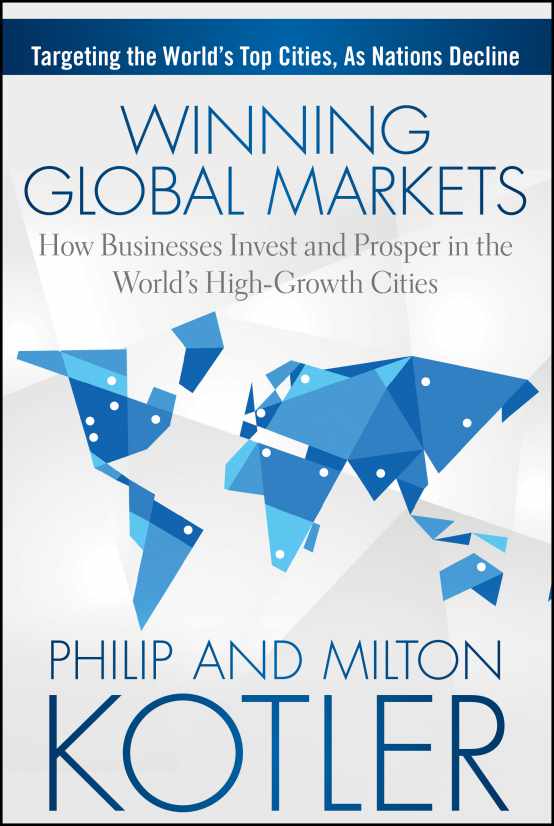Books by Philip Kotler

market your way to growth: 8 ways to win
The US, Europe, and Japan are facing the prospect of low and slow economic growth for the balance of this decade. Their economies will not be able to create enough jobs to match the size and growth of their workforces especially for younger workers, nor will they keep pace with generating the tax revenues needed to even begin to deleverage their countries enormous accumulated public debt. How can businesses grow in this difficult macroeconomic environment? In this book, Professor Kotler explains the seven basic pathways that can deliver growth even in a slow growth economy: Grow by Building Your Market Share. What is the best way to out-perform your competitors and grow your market share? Grow by Developing Enthusiastic Customers and Stakeholders. How can your company create fans and develop dedicated supply chain partners? Grow by Building a Powerful Brand. What can your company do to design and implement a powerful brand to serve as a living platform for its strategy and actions? Grow by Innovating New Products, Services and Experiences. How can your company develop a culture of innovation and think freshly about new offerings and experiences? Grow by International Expansion. How can you identity international macro and micro pockets of high growth and enter them successfully? Grow by Acquisitions, Merger and Alliances. How can our company grow through identifying attractive partnering opportunities through acquisitions, mergers and alliances? Grow by Building an Outstanding Reputation for Social Responsibility. How can we improve our companys social character to win more respect and support from the public and our stakeholders?

winning global markets: how businesses invest and prosper in the world's high-growth cities
We are facing a new generation of marketing challenges, different from the past and with a still uncertain global economic outlook. What we do know for certain, as born out in the data, is that global city regions in the developing world will dominate market economics and be a fundamental source of company growth and prosperity. Developed city regions like New York, Paris, and Tokyo, will still play a large role because of their high per capita GDP and their still great store of capital and intellectual and management assets. But the new global organization of business will have to meld these diverging worlds. This book will address these issues in detail and strategic insight. In little more than 10 years, the epicenter of the consuming and the marketing of all companies will have shifted from developed countries and cities to developing city-regions. In 2025, only three of the top 25 largest cities in the world will be in the U.S. New York, Los Angeles and Chicago. If we turn to the 23 Megacities of 10 million and over population, with the highest number of middle income households, McKInsey estimates that only 7 of these Megacities will be in developing countries. The remaining 16 will be in developing regions Shanghai, Beijing and Chongqing in China; Mumbai, Delhi and Kolkata in India; Mexico City, Sao Paulo, Buenos Aires and Rio de Janeiro in Latin America; Karachi, Dhaka, Manilla, Moscow, Cairo and Istanbul. Global marketing guru Philip Kotler and his brother Milton, a veteran of Chinese and Asian market consulting, explain how businesses have to change the culture of their headquarters and stakeholders to understand two basic changes. First, dont put too many resources in developed city markets. They are declining in consumer and business growth; while developing city markets are growing. Second, forget global regions and countries and focus on city markets, both in the developing as well as the developed regions. Western failure to accomplish this cultural shift will accelerate the rise of new multi-national companies from developing countries, serving global cities.

Loading the next 20 Records..…